The average cost of Abdominoperineal Resection in Tel Aviv approximately starts from USD 30000
Treatment cost
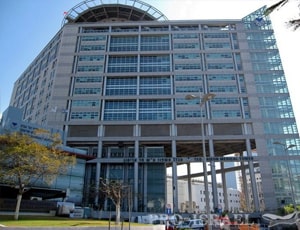
Tel Aviv Sourasky Medical Center -Ichilov Hospital located in Tel-Aviv, Israel is accredited by JCI. Also listed below are some of the most prominent infrastructural details:

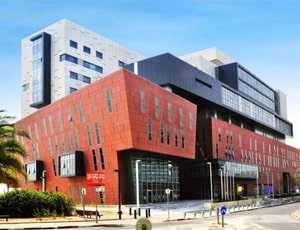
Assuta Hospital located in Tel-Aviv, Israel is accredited by JCI. Also listed below are some of the most prominent infrastructural details:
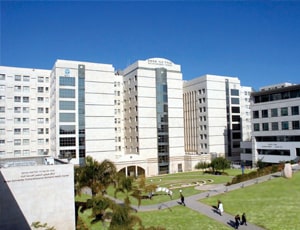
Rabin Medical Center located in Petah Tikva, Israel is accredited by JCI. Also listed below are some of the most prominent infrastructural details:
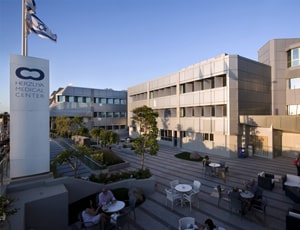
Apart from in-detail treatment procedures available, Herzliya Medical Center located in Herzliya, Israel has a wide variety of facilities available for International Patients. Some of the facilities which are provided by them are Accommodation, Airport Transfer, Interpreter, SIM, TV inside room. Also listed below are some of the most prominent infrastructural details:
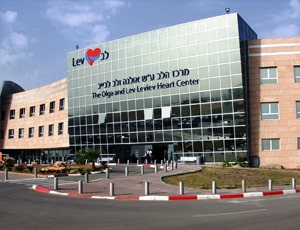
Sheba Medical Center located in Tel-Hashomer, Israel is accredited by JCI. Also listed below are some of the most prominent infrastructural details:
Abdominoperineal resection (APR) is a type of a surgery in which the anus, rectum, and sigmoid colon are removed through small cuts in the belly. It is a surgical procedure done primarily to remove the cancer of the rectum. Typically, abdominoperineal resection (AP) is conducted as an elective procedure. This procedure is most often used to treat rectum cancer if it is located very low in the rectum or in the anus, close to the sphincter muscles.
Nowadays, advanced surgical techniques and other treatment modalities have brought an increase in the rate of sphincter-sparing operations. However, APR surgery is still necessary in selected cases, especially if the patient has distal tumors or poor sphincter function. AP resection is a major operation. During perineal resection, the rectum, distal colon, and anal sphincter complex are completely removed using both anterior abdominal and perineal incisions. Once the anus and rectum are removed, a permanent colostomy is needed to complete the procedure.
Colostomy brings the colon to an opening at the surface of the skin, which allows the waste to pass out of the body. This new opening is called stoma and usually measures from one to one-and-a-half inches in diameter. A pouch, or a stoma appliance, is needed to be worn at all times. The stoma has no sphincter muscles, so there is no conscious control over the elimination of waste products from the body after the procedure.
Recovery of the patient depends on individual circumstances and general health of the patient. A patient may be required to stay in the hospital for three to seven days. However, some patients may need more time to recover.
You can walk and stand on the first day after AP resection and resume most of the usual activities shortly after the surgery. In fact, increased activity reduces the risk of blood clots and also improves breathing. A physical therapist will often visit you during your hospital stay and will help regain your strength after the surgery. After getting discharged from the hospital, avoid lifting more than 5 to 10 pounds for 4 weeks, as this allows the incisions to heal. It also decreases the risk of developing a hernia.
Ask your healthcare adviser for the best multiple options and choose the one that meets your expectations
The average cost of Abdominoperineal Resection in Tel Aviv starts from $30000. Abdominoperineal Resection in Tel Aviv is conducted across several JCI certified hospitals.
Abdominoperineal Resection package cost in Tel Aviv has different inclusions and exclusions. Some of the best hospitals for Abdominoperineal Resection offer a comprehensive package that covers the end-to-end expenses related to investigations and treatment of the patient. The Abdominoperineal Resection package in Tel Aviv includes the fees of the surgeon, hospitalization and anesthesia as well. There are many things that may increase the cost of Abdominoperineal Resection in Tel Aviv, including prolonged hospital stay and complications after the procedure.
There are several best hospitals for Abdominoperineal Resection in Tel Aviv. Some of the most renowned hospitals for Abdominoperineal Resection in Tel Aviv include the following:
After Abdominoperineal Resection in Tel Aviv, the patient is supposed to stay in guest house for another 16 days. This is important to ensure that the surgery was successful. During this time, control and follow-up tests take place to check for medical fitness.
Tel Aviv is undoubtedly one of the best cities for Abdominoperineal Resection in the world. It offers the best medical expertise and good patient experience at an affordable cost. there are a select few destinations that provide comparable quality of healthcare for the procedure. Some of such cities are:
There are certain expenses additional to the Abdominoperineal Resection cost that the patient may have to pay for. The per day extra expenses in Tel Aviv per person are about 75 USD.
The patient has to spend about 5 Days in the hospital after Abdominoperineal Resection for proper recovery and to get clearance for discharge. The doctors team review the patient's recovery during this time with the help of blood tests and imaging scans. Once they feel that everything is on track, the patient is discharged.
Out of all the hospitals in Tel Aviv, there are about 2 Hospitals best hospitals for Abdominoperineal Resection in Tel Aviv. These hospitals have the required infrastructure and a decided Abdominoperineal Resection unit where renal failure patients can be treated. These hospitals comply with all the rules and regulations as dictated by the regulatory bodies and medical association in Tel Aviv
Some of the most sought after doctors for Abdominoperineal Resection in Tel Aviv are:
Tel Aviv, Israel, is recognized as one of the top cities in the world for healthcare and medical treatment. Tel Aviv has cutting-edge medical facilities as well as excellent treatment modalities. While citizens have access to free healthcare, many patients prefer to seek private medical treatment and consult with doctors from private hospitals. Some of the most popular treatments available in Tel-Aviv include Oncology, Orthopaedics, Cardiology, Neurosurgery, Gastroenterology, Paediatrics, Bone marrow transplants, Pulmonology, etc. Tel Aviv's healthcare system and health insurance ensure high-quality care to its residents. The difference between the city's public and private healthcare systems is not in the quality of care but in the availability of more amenities. Israelis must enroll in the universal public healthcare system. People in the country have the option of purchasing "supplementary insurance" from one of the country's four health funds or private insurance from an insurance provider. This covers items like dental and optical coverage that the government does not provide. The city is equipped with cutting-edge medical technology and equipment. All in all the healthcare standards of the city are pretty amazing and appreciated around the world.
The hospitals in Tel Aviv deliver quality care and treatment. They are internationally recognized and accredited by healthcare organizations like JCI and ISO. Some of the top hospitals in the city include:
The doctors in Tel Aviv play a vital role in delivering top-level healthcare services focusing on each patient’s needs. Some of the top doctors in the city include:
Tel Aviv is an easily reachable city by train, bus, and flight. The nearest airport to Tel Aviv is Tel Aviv (TLV) International Airport from where you can travel to the city by bus or cab. If you are planning to undergo treatment here, MediGence can assist you in planning your medical travel.